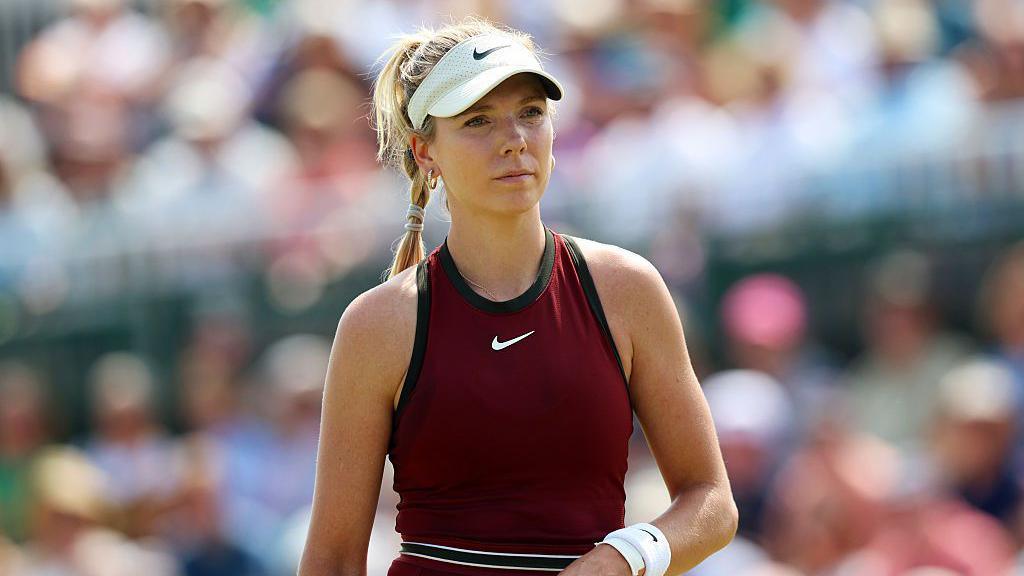Tennis Player Highlights Link Between Gambling and Online Abuse
Professional tennis player Katie Boulter recently revealed the extent of online abuse she endures, highlighting a significant correlation with gambling. The BBC report emphasizes the frequency of abusive messages referencing gambling losses.
Signify, employing AI-powered abuse detection (Threat Matrix), confirms this trend. Their data indicates that a substantial portion—40%—of all detected abuse directed at tennis players originates from “angry gamblers,” identifiable through message timing and content.
The Betting and Gaming Council responded by stating their members’ intolerance of social media abuse and the importance of swift action by social media platforms to remove offensive content.
BBC Sport investigated the interplay between gambling, tennis, women’s sports, and online harassment. Tennis’s global reach and year-round schedule contribute to its popularity among gamblers. A source from a major gambling operator reported daily global betting on tennis exceeding £100 million.
Betting is relatively evenly distributed between men’s and women’s tennis, with men’s slightly higher due to the Challenger tour’s volume. YouGov data reveals tennis as the fifth most popular sport for betting in the UK (2023), behind horse racing, football, golf, and boxing.
However, a significant 16% of tennis gamblers spend over £200 monthly, with 34% utilizing loyalty programs. This suggests substantial financial investment and potentially higher stakes when bets are lost, perhaps explaining the abusive targeting of players.
Signify’s work with approximately 30 players reveals a staggering 77% of moderated private messages originating from “angry gamblers.”
The relationship between tennis and gambling has long been controversial, with past concerns over match-fixing and ethics. However, the rise of online gambling has led to lucrative sponsorship deals.
With high-profile players advocating for increased prize money and sponsor revenue shares, tennis’s acceptance of gambling sponsorships has grown. Novak Djokovic, for example, suggested a greater share of gambling sponsorship revenue for players.
The International Tennis Federation (ITF) extended its partnership with Stake, a Curaçao-based gambling company, despite Stake’s subsequent breach of UK Gambling Commission rules and loss of its UK license. The ITF stated that all partnerships undergo rigorous vetting.
Several prominent tennis tournaments, including the Madrid, Miami, and Swedish Opens, now boast sponsorships from gambling companies like Betway. The Women’s Tennis Association (WTA) also partnered with FanDuel.
The sale of data to companies like Stats Perform (ATP), Sportradar (ATP), and Infront (ITF) for distribution to licensed betting operators aims to ensure regulated betting, replacing the previously unregulated “courtsiders” market.
While historically male-dominated, the UK gambling market shows an increase in female participation. UKGC data (2022) shows 42% of women gambled in the preceding four weeks, with the 35-54 age group most active. This includes non-sports gambling, but women are also targeted by sports betting platforms.
A 2024 Stats Perform survey indicates that 44% of betting operators aim to increase their female clientele. Morgan Stanley estimates women comprise 32% of US sports betters. Flutter’s FanDuel reports 24% of bets during the 2024 Paris Olympics were on women’s events.
The UKGC reported a £15.6 billion gambling industry revenue (April 2023-March 2024), exceeding the UK music and video game industries combined. Marketing and sponsorship spending is estimated at over £1.5 billion annually, rising to near £2 billion with sponsorships included.
The Office for Health Improvement and Disparities estimates 117-496 gambling-related suicides annually in England.
Recent regulatory tightening includes the 2019 whistle-to-whistle advertising ban, strengthened rules on appealing to children, a proposed levy for gambling harm research and treatment, and online slot stake limits.
The Health and Social Care Committee has also recommended further measures, including stricter advertising rules, risk-based regulation, and a public awareness campaign on gambling-related suicide.

